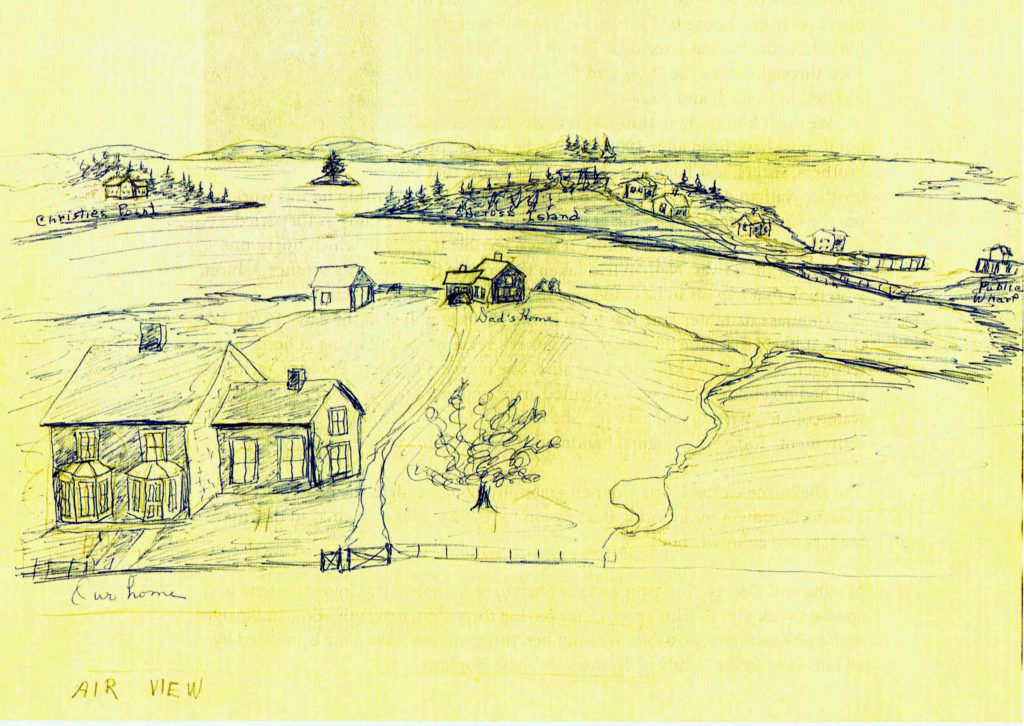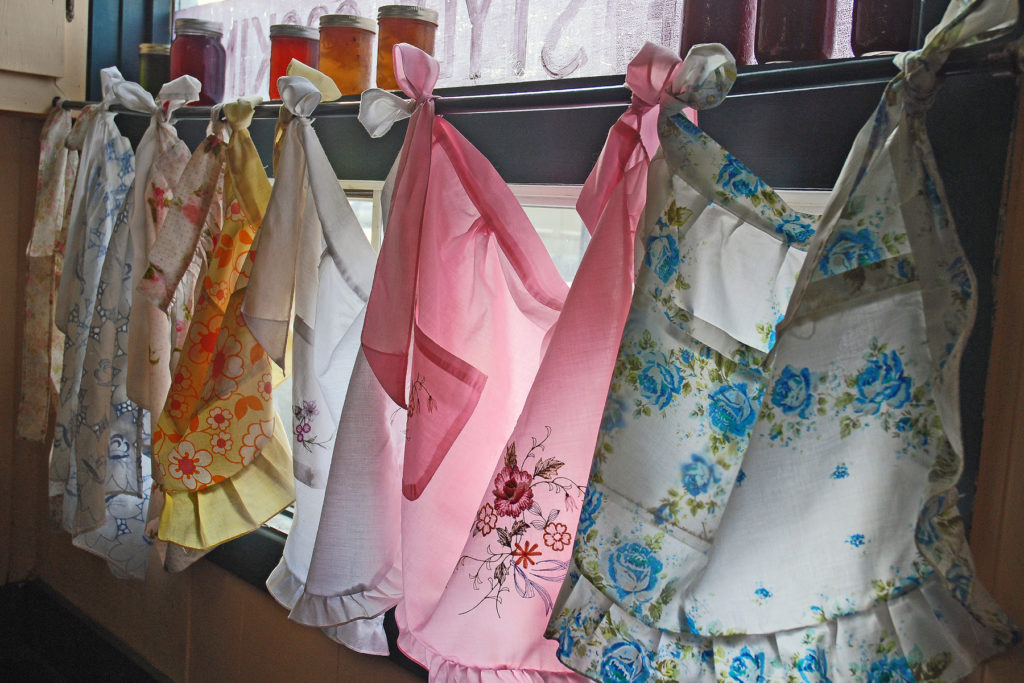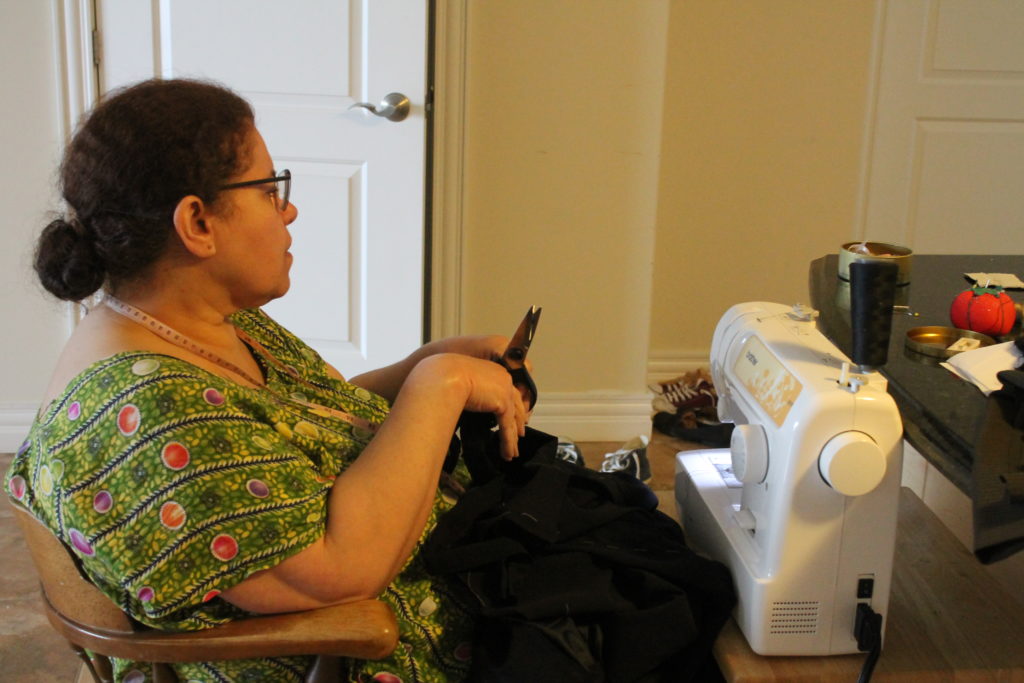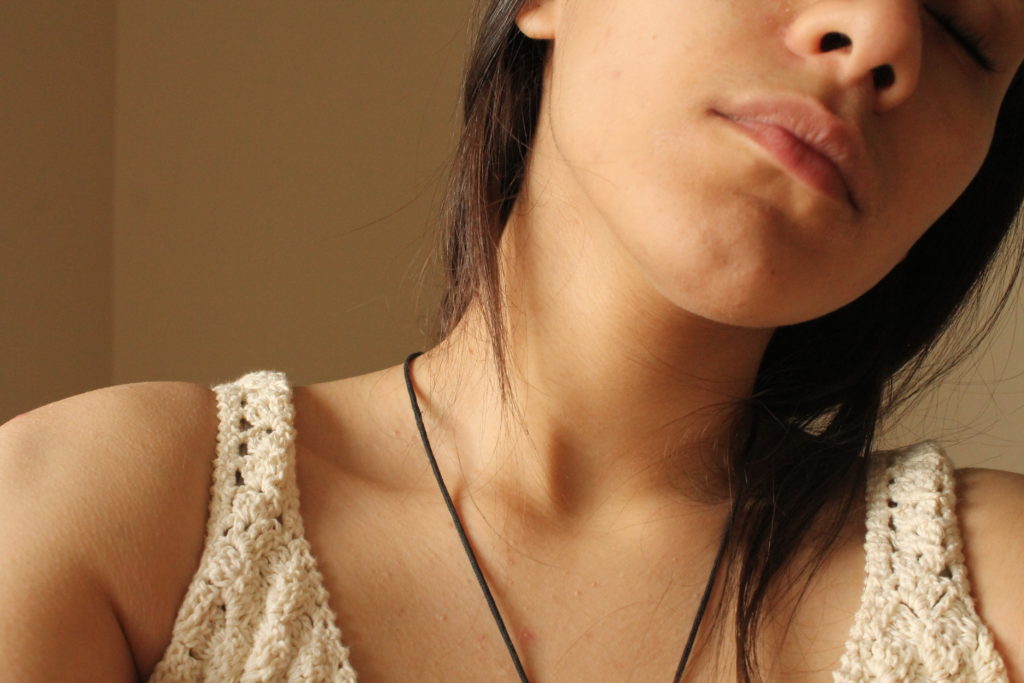Where Fear Meets Love
by Zainab Al-Habibi
When I was a child
I would to go to my mother’s bedroom
while she was asleep.
I’d touch her left side of her chest
to check her heartbeat,
to see if she was still alive.
I cannot recall a time when I thought of my family
without death also in my head.
Fear and love went hand in hand.
Ancient Egyptians embalmed the dead,
rituals to preserve the body and empower the soul.
It’s not so different now.
We are afraid of loss,
of disappearance.
As I grew and met more people to love,
fear became such a heavy burden.
But not very long ago,
I discovered fear will not prevent death,
it will only prevent me from living.
So now, when I wake up,
I don’t check my mother’s heartbeat.
I simply look outside my room,
I find my family,
I know they are close,
It is enough.

Mum Sewing by Zainab Al-Habibi
Zainab Al-Habibi writes: “I am 22 years old. I am from Egypt but lived in Saudi Arabia for eight years during my childhood. I came to Canada five years ago and am currently in my third year in a Bachelor of Child and Youth Studies at Mount Saint Vincent University. My love for writing grew when writing was once the only way to survive oppression.”
Being a Girl
by Rebecca D
When I went to that school in the refugee camp,
we had no facilities
and being a girl,
you know,
it means so many different things.
We would study
and go home at noon
and wait
and return the next day.
Sometimes the teacher
would not show up.
I felt there was nothing to study
and no one to push me,
to make me think I have something important.
When I was in Grade 5
Angelina Jolie built a refugee school
and I went there.
She made a big difference in my life.
My mother, affected by war,
did not go to school.
Sometimes being raised by a parent who has not gone to school,
they don’t even know what it is,
they don’t even know the importance of it all.
Being a kid,
sometimes you need someone
to push you and tell you,
Oh, this is how it should be done.
A role model,
you know?
Rebecca D writes: “I am currently in my final semester at Mount Saint Vincent University pursuing a Bachelor of Science in Applied Human Nutrition. I am originally from South Sudan but have spent most of my life in Kakuma Refugee Camp in Kenya due to civil war in my home country. I went to elementary school in the camp and then my sister, who lives in Australia, sponsored me to complete my high school studies in one of the best schools outside the camp. I did well in my Grade 12 final exams and applied for World University Service of Canada (WUSC) sponsorship. I was very lucky to meet the qualifications. In 2013, Mount Saint Vincent University offered me a four-year scholarship and that is how I made it to Canada.
Shelter
by Fatima Al-Habibi
I grew up in a very hot country where everybody cursed the sun and sang of the moon and its beauty. People complained about the sun’s heat and how bad it is for food, cars, the human body—everything. I always thought of the sun as a mother, trying so hard to care for her children: they are tired of her constant watch and are very irritable. But in my mind, the sun was a mother’s hug and I allowed it to caress my skin as much as possible.
Now, years later, I am in a different land but with the same beliefs about the sun. When I first moved to Nova Scotia, I felt homesick all the time, but I came to realize that I have to let it go and carry on with my life. One on gloomy, wet day, I ran inside a café, ordered a drink and sat at a table next to the window. I let my mind wander as I stared at the tiny rivers made by heavy rain on the paved street. I looked at the sky for shelter but all I could see was greyness covering up my sun; my shelter on foreign ground. I sipped on my drink and tried to make its very weak heat count. I went home with the sun on my mind.
The next morning, I woke up to find a strong ray of sunshine shining on the wood floor. I took a few steps, opened the balcony door slightly, and sat on the floor in a mix of warmth and chilly breeze. I closed my eyes and thought about lights, shadows and home. A smile travelled across my face and stillness crawled through my mind. For a second, I felt at peace with belonging nowhere.

Sun by Fatima Al-Habibi
Fatima Al-Habibi is a 22-year-old third-year student in the Bachelor of Commerce program at Saint Mary’s University in Halifax. She graduated last year with a diploma in accounting from the Nova Scotia Community College. She is a painter, nature-lover, and a proud immigrant and feminist.







